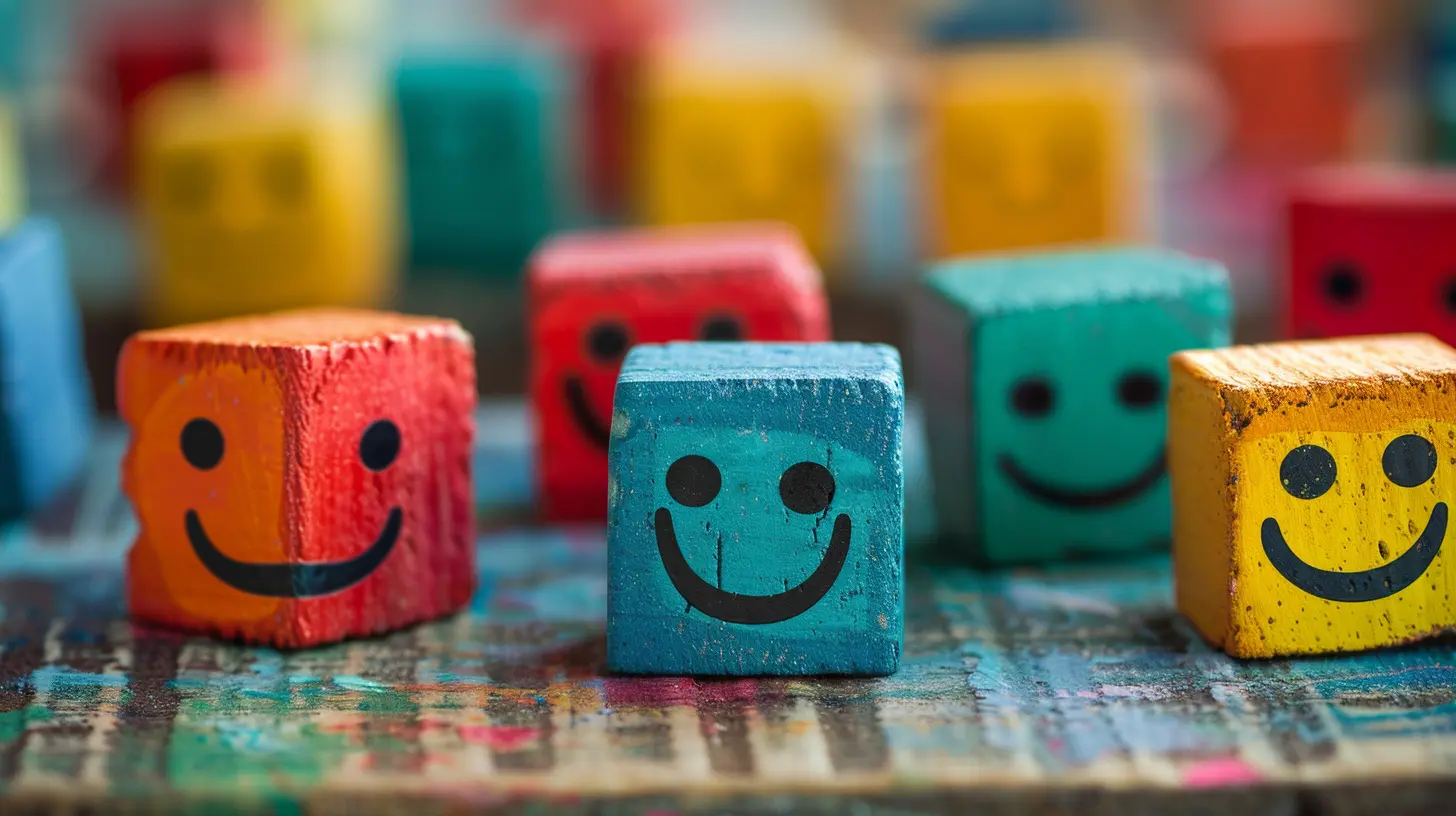The Emotional Intelligence Toolkit: Practical Skills for Everyday Life
27 August 2025
Ever found yourself saying the wrong thing at the worst possible time? Or maybe you've walked away from a conversation thinking, “Why did I react like that?” Don’t beat yourself up — we’ve all been there. The good news? There’s a way to handle these emotional curveballs more smoothly, and it all starts with emotional intelligence.
Emotional intelligence, or EQ, isn’t just a buzzword—it’s a life skill. Think of it as your brain’s user manual for dealing with feelings: yours and everyone else’s. Whether you’re navigating tricky relationships, workplace drama, or just trying to keep your cool in traffic, EQ can be your secret weapon.
In this article, we’ll break down a practical emotional intelligence toolkit—packed with habits, hacks, and insights you can use every single day. Ready to level up your emotional game? Let’s dive in.
What Is Emotional Intelligence, Really?
Before we start handing out tools, let’s make sure we’re talking about the same thing.Emotional intelligence is the ability to:
- Recognize your own emotions
- Understand what they’re telling you
- Handle them effectively
- Recognize emotions in others
- Respond to them in a thoughtful, compassionate way
Basically, it’s the difference between reacting and responding. Reacting is knee-jerk. Responding is conscious. And emotional intelligence helps you choose the latter.
Why EQ Matters More Than IQ (No, Seriously)
We often associate success with smarts, degrees, or tech know-how. But here’s the kicker: research shows that emotional intelligence is a better predictor of success than IQ or technical skills.Why? Because life is relationships. Whether you’re pitching a project, comforting a friend, or raising a stubborn toddler — you’re dealing with people (and their moods) 24/7.
High EQ helps you:
- Communicate clearly
- Reduce stress
- Defuse conflicts
- Improve relationships
- Make better decisions
It’s like having a social sixth sense. Handy, right?
The 5 Pillars of Emotional Intelligence
Let’s break EQ down into its five core parts, so we can start building your toolkit.1. Self-Awareness 🧠
This is Ground Zero. If you can’t understand what you’re feeling or why, you'll end up reacting on autopilot.Practical Tools:
- Emotion Check-ins: Ask yourself “What am I feeling right now and why?” several times a day.
- Name it to tame it: Label your emotions. There’s a big difference between “I’m stressed” and “I’m overwhelmed because I overcommitted.”
- Journaling: Just 5 minutes a day can help you notice patterns and triggers.
Think of it like being the GPS of your own feelings. You can’t get where you want to go if you don’t know where you are.
2. Self-Regulation 🔒
Once you’re aware of your emotions, can you manage them? This doesn’t mean stuffing them down. It means responding instead of reacting.Practical Tools:
- Pause & Breathe: Before you snap, take a deep breath. That pause creates space to choose how to act.
- Reframe the story: Instead of “She’s trying to annoy me,” try “Maybe she’s having a rough day.”
- Practice gratitude: Gratitude shifts perspective and calms the nervous system. Try writing three things you’re grateful for each night.
Self-regulation is like having an emotional brake pedal. It keeps you from crashing.
3. Motivation 🔥
High EQ also involves internal motivation — being driven by goals, values, and meaning, rather than just external rewards.Practical Tools:
- Know your why: Write down your core values and goals. When the going gets tough, remind yourself of what matters.
- Set tiny wins: Break goals into micro-steps. Progress fuels motivation.
- Visualize success: Athletes do this, and it works. Picture yourself succeeding — feel it, see it, believe it.
When you’re internally motivated, you don’t need someone else to light your fire. You bring your own matches.
4. Empathy ❤️
This is the secret sauce. Empathy is being able to step into someone else’s shoes and feel what they’re feeling — without judgment.Practical Tools:
- Ask instead of assume: “You seem upset — want to talk about it?” goes a lot further than guessing.
- Active listening: Don’t just wait to speak — really listen. Repeat back what you heard to show you get it.
- Body language decoder: Notice posture, tone, and facial expressions. Sometimes the truth hides between the lines.
Empathy connects us. It builds bridges instead of walls.
5. Social Skills 🗣️
Finally, emotional intelligence shows up in how well we navigate social settings — from difficult conversations to teamwork.Practical Tools:
- Use “I” statements: Say “I felt hurt when…” instead of “You made me feel…”
- Give feedback gently: Sandwich criticism between kindness and positives.
- Learn to disagree respectfully: Conflict isn’t the enemy — disrespect is.
Good social skills turn awkward silence into meaningful connection.
Real-World Examples of EQ in Action
Let’s bring it home with some daily-life scenarios.At Work
Let’s say your team missed a deadline, and your manager is ticked off. Instead of getting defensive, you pause. You acknowledge your part, validate their frustration, then offer solutions. That’s EQ.Or maybe a coworker is unusually snappy. Instead of snapping back, you ask if everything’s okay. You find out they’re dealing with a family emergency. That’s EQ.
In Relationships
Your partner forgets your anniversary (ouch). Instead of exploding, you take time to cool down, then express your feelings honestly: “I felt hurt because that day matters to me.” That’s EQ.Or when a friend goes quiet for a while, you resist making it about you. You check in gently: “I noticed you’ve been distant lately — you okay?” That’s EQ.
How to Build Your Emotional Intelligence Muscle 💪
Just like going to the gym, emotional intelligence gets stronger with use. Here’s how to work it out:1. Practice Mindfulness
Mindfulness isn’t just meditation with incense and gongs. It’s about being in the moment — noticing your thoughts and emotions instead of getting swept away.Try a 5-minute breathing exercise in the morning, or simply pause during your day and observe: “What am I feeling right now?”
2. Get Honest Feedback
Ask trusted friends or coworkers, “How do I come across in tough situations?” You might be surprised — and enlightened.Feedback’s like a mirror. Sometimes painful, always useful.
3. Read Emotional Cues
Emotions aren’t just spoken — they’re shown. Pay attention to tone of voice, facial expressions, and body language. It’s like learning another language, one you already kind of know.4. Reflect After Conflicts
Instead of just walking away steaming, ask yourself:- What was I feeling?
- What did they seem to be feeling?
- What could I do differently next time?
Growth lives in reflection.
5. Cultivate Curiosity Over Judgment
When someone does something that annoys you, ask why. Not just to them — to yourself. Curiosity opens doors. Judgment slams them.Emotional Intelligence and Mental Health
Let’s not skip this part — it’s huge.Low emotional intelligence is linked to:
- Anxiety
- Depression
- Chronic stress
- Burnout
High EQ, on the other hand, boosts:
- Resilience
- Self-esteem
- Relationship satisfaction
- Coping skills
It’s not a cure-all, but it’s a powerful protective factor. Think of emotional intelligence as your emotional immune system.
Teaching EQ to Kids (or Your Inner Child)
Wish you'd learned this stuff earlier? You can plant those seeds now — in your kids or your inner child.Teach kids to:
- Name their emotions
- Pause before reacting
- Express themselves safely
- Understand others
Honestly, even simple tools like “Feelings Charts” or bedtime check-ins (“What was your best and toughest moment today?”) can work wonders.
And for your inner child? Start now. It’s never too late.
Final Thoughts: Start Small, Stay Kind
Here’s the truth: Building emotional intelligence is a lifelong journey. You don’t have to be perfect — just present. Start small. Choose one tool to try this week. Be gentle with yourself, and stay curious.Remember, every emotionally intelligent choice you make is like depositing into your emotional bank account. It adds up. And these are the kind of skills that truly change your life from the inside out.
So, ready to fill up your emotional toolkit? Let your EQ be the compass that guides you through the beautiful, messy adventure that is life.
all images in this post were generated using AI tools
Category:
Emotional Intelligence TrainingAuthor:

Alexandra Butler
Discussion
rate this article
1 comments
Finnegan Butler
Emotional intelligence is the key to unlocking deeper connections and personal growth. Embrace these practical skills and watch your relationships and self-awareness flourish. You’ve got this!
August 27, 2025 at 4:46 PM

Alexandra Butler
Thank you for your insightful comment! I completely agree—embracing emotional intelligence truly transforms our connections and self-awareness. Let's continue to cultivate these vital skills together!


